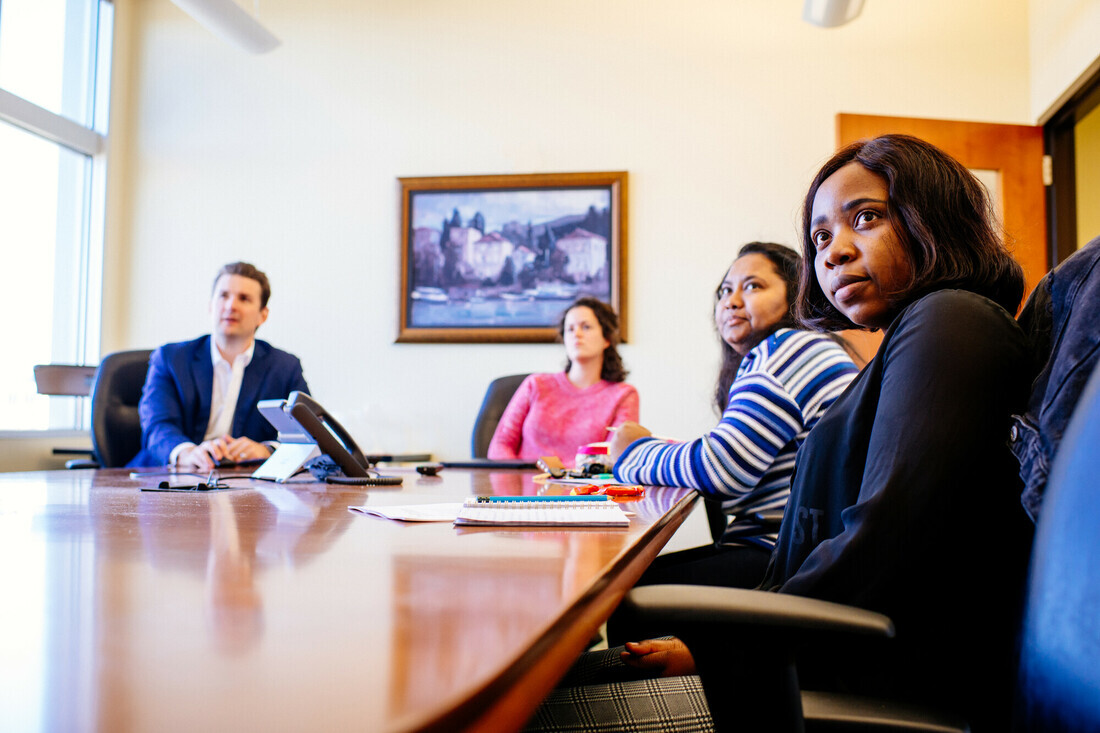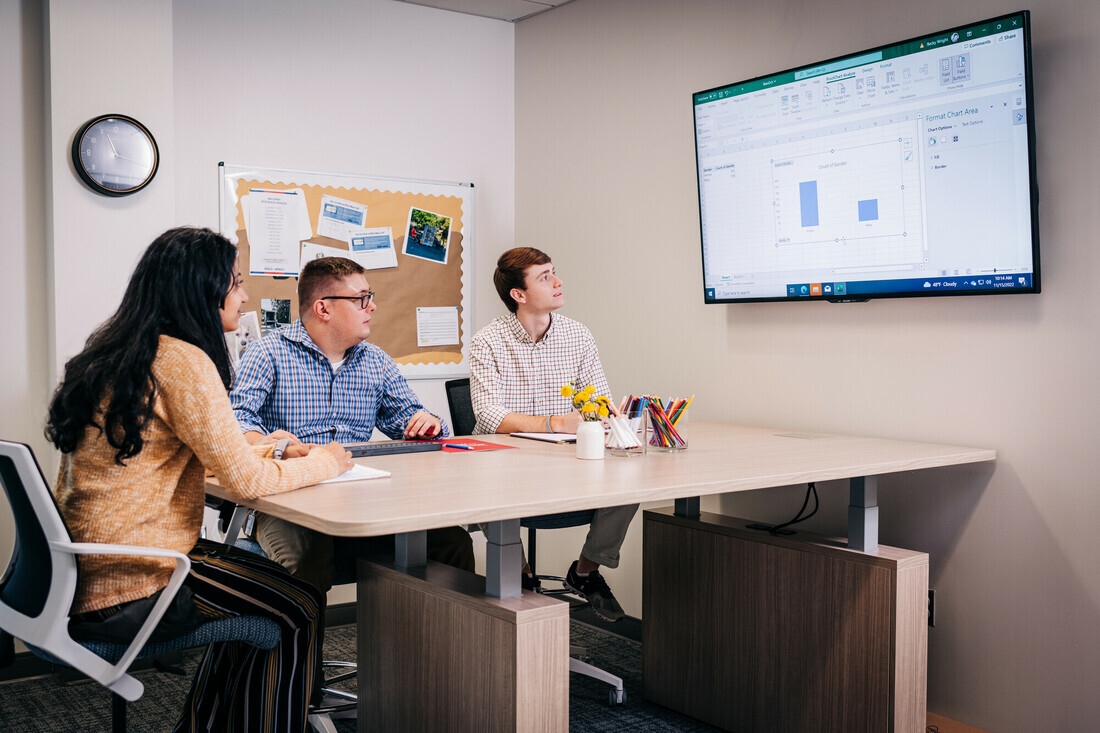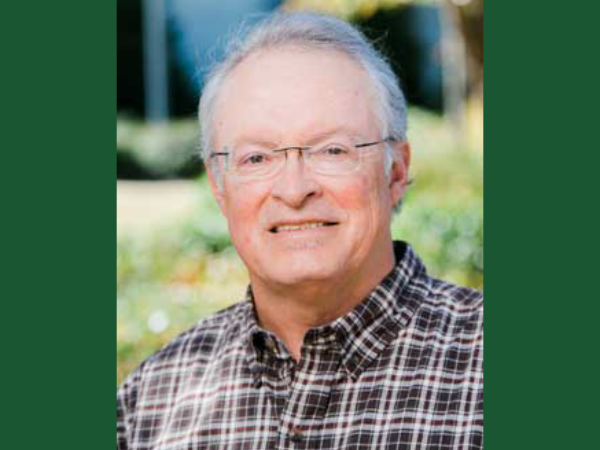In the world of medicine, treating the body and treating the person can be two distinctly different things. The medical sociology program in the University of Alabama at Birmingham’s Department of Sociology is a way to bridge that gap.
The department offers both B.S. and Ph.D. degrees in Medical Sociology, one of the few programs of its kind in the United States. The goal is to help forge a connection between the clinician side of medicine and those who focus more on research and data analysis, providing students with an understanding of the social contexts of health, illness, and health care.
 “This degree can help pre-med majors differentiate themselves, because not only do they know the organic chemistry, now they also understand the cultural and social dynamics around medicine,” said, Chris Biga, Ph.D., teaching associate professor and director of undergraduate studies in the Department of Sociology. “And for those pre-med majors who realize they don’t want to become doctors, this degree can help them move into a different medical field.
“This degree can help pre-med majors differentiate themselves, because not only do they know the organic chemistry, now they also understand the cultural and social dynamics around medicine,” said, Chris Biga, Ph.D., teaching associate professor and director of undergraduate studies in the Department of Sociology. “And for those pre-med majors who realize they don’t want to become doctors, this degree can help them move into a different medical field.
“It also can give sociology majors a direction. The American Sociological Association did a study that found a lot of students who go into sociology really understand and enjoy the material, but they’re kind of aimless about what they want to do with it. This gives them more of a career focus than just a general sociology degree.”
The value of the medical sociology program quickly became evident to Ashlon Schum, MBA, MPH, following her graduation from UAB in 2014. Schum earned her B.S. in Medical Sociology and says she was hired by Cigna Healthcare after making a presentation during the interview process that was based on her senior thesis.
“The program definitely helped me start my career,” said Schum, who currently is Director of Strategy Advancement for Humana health insurance. “I wasn’t interested in being a clinician, but I wanted to make an impact in the health-care field. With medical sociology, you are able to contribute by looking at the overall population health level, as opposed to an individual patient.
“I’m interested in the social determinants of health. Things like health equity and how it can affect overall health trajectory, and how we can improve those outcomes. One thing that’s been enormously helpful in my career was the strong social statistics emphasis at UAB. That’s helped with my understanding of how to do research and look objectively at data. A lot of the themes and focus areas from my medical sociology degree are very relevant to the work I do today.”
The program also provided an unexpected career path for Caroline Pardo Ph.D., CHCP, FACEHP. Pardo majored in communication management as a UAB undergrad and says she “had never taken a sociology course in my life” before entering the medical sociology program.
“A faculty mentor noticed that my communication work tended to apply a lot of social theories, and suggested I consider medical sociology,” says Pardo, who received her Ph.D. in 2007 and currently is President, Continuing Professional Development for the Clinical Education Alliance, an organization that aims to improve patient care and outcomes through healthcare education. “The program taught me how to think about things that are hard to measure that guide our world, like how one takes in information and learns from it.
“I was able to see that process at UAB, and started thinking about how medicine interacts in our lives. Now I use that approach to thinking every day. I do a lot of work in how patients interact with health care systems, and how health care professionals can be better practitioners. And it’s because I was trained in the medical sociology program to understand the role health care as a system enacts on and with people.”
One asset of the program is that it’s research-focused, allowing students to work with faculty members on real-world projects taking place in the health-care field. For example, Associate Professor Mieke Beth Thomeer, Ph.D., has medical sociology students working with her on a long-term study being funded by the National Institute of Aging.
 “We are using data that follows thousands of women for over four decades, and we’re looking at different aspects of their reproductive life,” Thomeer says. “How many children do they have? At what age did they have them? Were those pregnancies planned? Did they experience a pregnancy loss? And then, how do all those things relate to their health as they get older?
“We are using data that follows thousands of women for over four decades, and we’re looking at different aspects of their reproductive life,” Thomeer says. “How many children do they have? At what age did they have them? Were those pregnancies planned? Did they experience a pregnancy loss? And then, how do all those things relate to their health as they get older?
“People who do clinical work or health research are often looking for more understanding of the social side of health and medicine. We’re seeing some very wide health disparities in the country. The medical sociology Ph.D. is a way to look at where these disparities come from, and the social aspects behind them. It’s a bridge between social sciences and the medical side of things, which allows you to move into a lot of different disciplinary spaces.”
Indeed, one of the prime advantages of venturing down the medical sociology path is the vast amount of ground it can cover. As the health-care system continues to expand, it will require new roles and even entire new fields that extend far beyond the doctor’s office.
“Health and health care are a major part of our lives and our economy,” said Magdalena Szaflarski, Ph.D., professor and director of graduate studies in the Department of Sociology. “There are more and more jobs in health care for all different types of professionals. We want to train our students to be part of the health-care sector, but also work on population health issues and design prevention programs for things like obesity and strokes.
“We need to keep our population health as strong as possible, so we can have people working and living good quality lives. To get there, we need programs and policies designed around health. Our medical sociology graduates can help with those initiatives in the health-care sector and beyond. There is a need for it, and we’re training our students to fill that need.”


